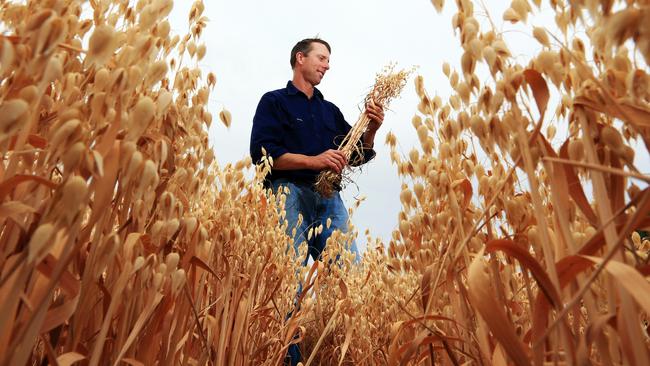The business of solving society’s problems
Companies are seeking to marry profit with social benefits as part of a new push across the corporate world.

Suncorp sets up an insurance product for low-income earners that will cover a car and basic contents for as low as $4 a week, tapping in to a market estimated at up to three million uninsured.
National Australia Bank offers free psychological counselling to customers in financial strife, stepping in before they reach crisis point and default, thus reducing bad debts by 20 per cent and saving $7.2 million in costs.
Uncle Tobys, now owned by Nestle, develops higher-yielding and more resilient oat varieties that save on milling costs. It also boosts the volume of oats sourced within 100km of the factory to 50 per cent, saving transport and fuel costs.
Consider it enlightened self-interest.
These three instances of companies seeking to marry profit with social benefits are part of a new push across the corporate sector that goes beyond corporate social responsibility to actively targeting social issues.
One of the unlikely champions of the strategy is Peter Yates, the former chairman of Packer’s PBL and Macquarie investment banker who now runs the prestigious Myer family office.
Among his many philanthropic roles including the Royal Children’s Hospital in Melbourne and the Australian Science Media centre and work with the not-for-profit sector, Mr Yates also chairs the Shared Value Project.
“This is different from philanthropy,” Mr Yates said. “Businesses can work to solve societal problems. We are going to invest in these projects and, eventually, we will make money.”
He said companies are starting to recognise that achieving both social impact and business returns are not mutually exclusive.
Mr Yates will be one of the speakers at a forum in Melbourne on April 13 called Business: Partnering for Change, along with Heather Ridout from Australian Super and Tim Costello from World Vision Australia. The term “shared value” has gained currency with many large corporations overseas and was coined by Mark Kramer and Michael Porter in a Harvard Business Review article in 2011.
Some see shared value as the next logical step after corporate social responsibility, which usually involves donations to charity or the non-profit sector without any expectation of returns.
While the concept is still in its infancy in Australia, it sits comfortably alongside “profit with purpose”, impact investing, and other strategies that are especially popular with younger generations.
Shared value is also part of a growing dissatisfaction in the community with companies pursuing profits and shareholder value at all costs — witness the record low levels of public trust in organisations in the wake of financial planning, insurance and market-rigging scandals at the big banks, or the exploitation of migrant workers at 7-Eleven and in food production.
The Edelman Trust Barometer last month showed trust in business in Australia has dived to 49 per cent, from a trust score of 65 per cent the previous year.
Helen Yates, executive director of the Shared Value Project, said the aim is to get a director on the board of one-third of companies in the ASX100 to champion the benefits of shared value.
“Shared value places social problems at the core of business objectives,” she said.
“It’s a business strategy focused on companies creating measurable economic benefit by identifying and addressing social problems that intersect with their business.”
One approach is developing products that address a social problem, such as the health incentives being adopted by life insurers to improve the health of clients.
Another approach, adopted by Bendigo Bank, is supporting local communities by creating community branches in rural areas where the major banks were closing hundreds of branches in the 1990s.
Bendigo now has nearly one million customers in 300 branches, run by local communities as franchises, and says they generate $1 billion in revenue with average growth rates of 18 per cent.



To join the conversation, please log in. Don't have an account? Register
Join the conversation, you are commenting as Logout